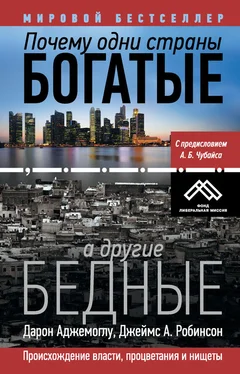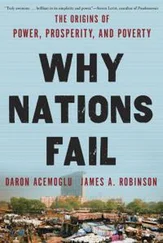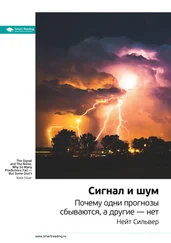— ( 1980). “Wheeled Transportation in Pre-Colonial West Africa.” Africa 50: 249–62.
— (, ed. (1995). From Slave Trade to “Legitimate” Commerce: The Commercial Transition in Nineteenth-century West Africa. New York: Cambridge University Press.
Leith, Clark J. (2005). Why Botswana Prospered. Montreal: McGill University Press.
Lenger, Friedrich (2004). “Economy and Society.” In Jonathan Sperber, ed. The Shorter Oxford History of Germany: Germany 1800–1870. New York: Oxford University Press.
Leon, Juanita (2009). Country of Bullets: Chronicles of War Albuquerque: University of New Mexico Press.
Lerner, Abba P. (1972). “The Economics and Politics of Consumer Sovereignty.” American Economic Review 62: 258–66.
Levy, David M., and Sandra J. Peart (2009). “Soviet Growth and American Textbooks.” Unpublished.
Lewis, I. M. (1961). A Pastoral Democracy . Oxford, U. K.: Oxford University Press.
— (2002). A Modern History of the Somali. 4th ed. Oxford, U. K.: James Currey.
Lewis, W. Arthur (1954). “Economic Development with Unlimited Supplies of Labour.” Manchester School of Economic and Social Studies 22: 139–91.
Lindert, Peter H. (2004). Growing Public. Volume 1: Social Spending and Economic Growth Since the Eighteenth Century. New York: Cambridge University Press.
— ( 2009). Growing Public. Volume 2: Further Evidence: Social Spending and Economic Growth Since the Eighteenth Century. New York: Cambridge University Press.
Lipset, Seymour Martin (1959). “Some Social Requisites of Democracy: Economic Development and Political Legitimacy.” American Political Science Review 53: 69–105.
Lipset, Seymour Martin, and Stein Rokkan, eds. (1967). Party System and Voter Alignments. New York: Free Press.
Lopez, Claudia, ed. (2010). YRefundaron la Patria. de como mafiosos ypoliticos reconfiguraron el Estado Colombiano. Bogota: Corporacion Nuevo Arco Iris: Intermedio.
Lovejoy, Paul E. (2000). Transformations in Slavery: A History of Slavery in Africa. 2nd ed. New York: Cambridge University Press.
MacFarquhar, Roderick, and Michael Schoenhals (2008). Mao’s Last Revolution. Cambridge, Mass.: Harvard University Press.
Mann, Michael (1986). The Sources of Social Power. Volume 1: A History of Power from the Beginning to A. D. 1760. New York: Cambridge University Press.
— ( 1993). The Sources of Social Power. Volume 2: The Rise of Classes and Nation-states, 1760–1914. New York: Cambridge University Press.
Manning, Patrick (1990). Slavery and African Life: Occidental, Oriental, and African Slave Trades. New York: Cambridge University Press.
Mantoux, Paul (1961). The Industrial Revolution in the Eighteenth Century. Rev. ed. New York: Harper and Row.
Martin, Simon, and Nikolai Grube (2000). Chronicle of the Maya Kings and Queens: Deciphering the Dynasties of the Ancient Maya. New York: Thames and Hudson.
Martinez Jose (2002). Carlos Slim: Retrato Inedito. Mexico City: Editorial Oceano.
Masire, Quett K. J. (2006). Very Brave or Very Foolish? Memoirs of an African Democrat. Gaborone, Botswana: Macmillan.
McCreery, David J. (1994). Rural Guatemala, 1760–1940. Palo Alto, Calif.: Stanford University Press.
McGregor, Richard (2010). The Party: The Secret World of China’s Communist Rulers. New York: Harper.
McMillan, John, and Pablo Zoido (2004). “How to Subvert Democracy: Montesinos in Peru.” Journal of Economic Perspectives 18: 69–92.
Melbourne, Alexander C. V. (1963). Early Constitutional Development in Australia: New South Wales 1788–1856; Queensland 1859–1922. With notes to 1963 by the editor. Edited and introduced by R. B. Joyce. 2nd ed. St. Lucia: University of Queensland Press.
Meredith, Martin (2007). Mugabe: Power, Plunder, and the Struggle for Zimbabwe’s Future. New York: Public Affairs Press.
Michels, Robert (1962). Political Parties: A Sociological Study of the Oligarchical Tendencies of Modern Democrac y. New York: Free Press.
Mickey, Robert W. (2008). Paths out of Dixie: The Democratization of Authoritarian Enclaves in America’s Deep South, 1944–1972. Unpublished book manuscript.
Migdal, Joel S. (1988). Strong Societies and Weak States: State-Society Relations and State Capabilities in the Third World. Princeton, N. J.: Princeton University Press.
Mithen, Stephen (2006). After the Ice: A Global Human History 20,000–5000 BC. Cambridge, Mass.: Harvard University Press.
Mokyr, Joel (1990). The Lever of Riches: Technological Creativity and Economic Progress. New York: Oxford University Press.
— ( 2009). The Enlightened Economy. New York: Penguin.
Moore, Andrew M. T., G. C. Hillman, and A. J. Legge (2000). Village on the Euphrates: From Foraging to Farming at Abu Hureyra. New York: Oxford University Press.
Morgan, Edmund S. (1975). American Slavery, American Freedom: The Ordeal of Colonial Virginia. New York: W. W. Norton and Co.
Munro-Hay, Stuart C. (1991). Aksum: An African Civilisation of Late Antiquity. Edinburgh: Edinburgh University Press.
Myers, Ramon H., and Yeh-Chien Wang (2002). “Economic Developments, 16441800.” In Willard J. Peterson, ed. The Cambridge History of China. Volume 9, Part 1: The Ch’ing Empire to 1800. New York: Cambridge University Press.
Naidu, Suresh (2009). “Suffrage, Schooling, and Sorting in the Post-Bellum South.” Unpublished. Department of Economics, Columbia University. Available at tuvalu.santafe.edu/~snaidu/papers/suffrage_sept_16_2010_combined.pdf.
Narayan, Deepa, ed. (2002). Empowerment and Poverty Reduction: A Sourcebook. Washington, D. C.: The World Bank.
Neal, David (1991). The Rule of Law in a Penal Colony. New York: Cambridge University Press.
Neale, J. E. (1971). Elizabeth I and Her Parliaments, 1559–1581. London: Cape.
Nogal, C. Alvarez, and Leandro Prados de la Escosura (2007). “The Decline of Spain (1500–1850): Conjectural Estimates.” European Review of Economic History 11: 319–66.
North, Douglass C. (1982). Structure and Change in Economic History. New York: W. W. Norton and Co.
North, Douglass C., and Robert P. Thomas (1973). The Rise of the Western World: A New Economic History. New York: Cambridge University Press.
North, Douglass C., John J. Wallis, and Barry R. Weingast (1989). Violence and Social Orders: A Conceptual Framework for Interpreting Recorded Human History. Princeton, N. J.: Princeton University Press.
North, Douglass C., and Barry R. Weingast (1989). “Constitutions and Commitment: Evolution of Institutions Governing Public Choice in 17th Century England.” Journal of Economic History 49: 803–32.
Nove, Alec (1992). An Economic History of the USSR 1917–1991. 3rd ed. New York: Penguin Books.
Nugent, Jeffrey B., andJames A. Robinson (2010). “Are Endowments Fate? On the Political Economy of Comparative Institutional Development.” Revista deHistoria Economica ( Journal of Iberian and Latin American Economic History ) 28: 45–82.
Nunn, Nathan (2008). “The Long-Term Effects of Africa’s Slave Trades.” Quarterly Journal of Economics 123: 139–76.
Nunn, Nathan, and Leonard Wmtchekon (2011). “The Slave Trade and the Origins of Mistrust in Africa,” forthcoming in the American Economic Review.
O’Brien, Patrick K., Trevor Griffiths, and Philip Hunt (1991). “Political Components of the Industrial Revolution: Parliament and the English Cotton Textile Industry, 1660–1774.” Economic History Review , New Series 44: 395–423.
Читать дальше
Конец ознакомительного отрывка
Купить книгу












